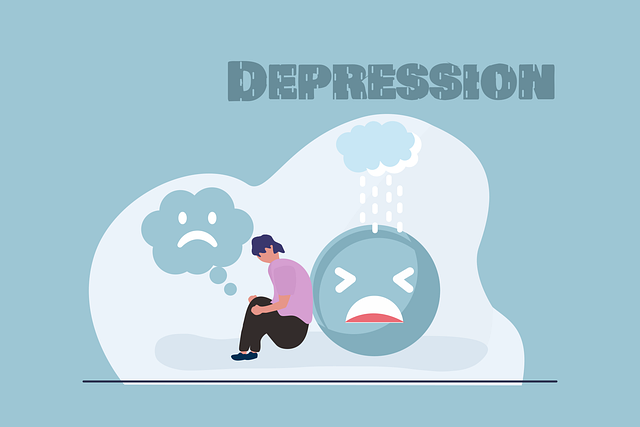Mental Health Policy Analysis emphasizes the growing need for effective wellness apps, citing examples like Westminster Sexual Addiction Therapy (WSAT) which addresses niche issues with specialized support. These apps should promote positive thinking, offer conflict resolution tools, and integrate evidence-based interventions tailored to individual needs. A user-centric design, focusing on intuitive navigation, personalization, and emotional regulation, is crucial for success. Technology enhances access to care, particularly in diverse, geographically restricted, or stigmatized communities, but raises ethical concerns around data security and cultural sensitivity that developers must address.
In today’s digital age, mental wellness apps offer a promising avenue for support and treatment. This article explores app development with a focus on addressing sexual addiction, using Westminster Sexual Addiction Therapy as a case study. We delve into understanding mental health foundations, key considerations from leading therapy practices, and designing user-centric features for effective treatment. Additionally, we discuss technology implementation, privacy concerns, and ethical guidelines, emphasizing best practices in this burgeoning field.
- Understanding Mental Health and Addiction: A Foundation for App Development
- Westminster Sexual Addiction Therapy: Case Study and Key Considerations
- Designing User-Centric Features for Effective Treatment and Support
- Technology Implementation, Privacy, and Ethical Guidelines in Mental Wellness Apps
Understanding Mental Health and Addiction: A Foundation for App Development

Understanding mental health and addiction is a foundational step for developing effective wellness apps. According to the Mental Health Policy Analysis and Advocacy, it involves recognizing and addressing a wide range of conditions, from depression and anxiety to more complex issues like sexual addiction. For instance, Westminster Sexual Addiction Therapy highlights the need for specialized support in this area, which can be integrated into app design as a valuable resource.
Apps should not only focus on diagnosing but also promoting positive thinking and providing tools for conflict resolution techniques. By understanding the nuances of mental health challenges, developers can create intuitive interfaces that offer evidence-based interventions, ensuring users receive support tailored to their unique needs. This holistic approach not only aids in recovery but also empowers individuals to actively manage their well-being.
Westminster Sexual Addiction Therapy: Case Study and Key Considerations

The Westminster Sexual Addiction Therapy (WSAT) case study offers valuable insights into the development and effectiveness of mental wellness apps, particularly in addressing niche issues like sexual addiction. WSAT’s app-based therapy programs demonstrate the potential for digital tools to reach a wide audience struggling with similar challenges, providing support where traditional therapy might be scarce or stigmatized. By leveraging technology, the app caters to individuals seeking privacy and accessibility in their treatment journey.
Key considerations arise from this study, particularly in the realms of emotional regulation, burnout prevention strategies for healthcare providers, and conflict resolution techniques. Effective mental wellness apps must balance user privacy and data security with evidence-based therapeutic interventions. Additionally, they should incorporate features that support ongoing engagement and accountability, fostering a sense of community among users while also ensuring ethical guidelines are met.
Designing User-Centric Features for Effective Treatment and Support

In the realm of mental wellness app development, designing user-centric features is paramount for effective treatment and support. Apps like Westminster Sexual Addiction Therapy must prioritize user needs, offering intuitive interfaces that facilitate easy navigation and access to resources. By incorporating interactive tools tailored to individual preferences, such as personalized goals, progress tracking, and adaptive feedback mechanisms, these apps can foster engagement and enhance therapeutic outcomes.
Emotional well-being promotion techniques, confidence boosting exercises, and compassion cultivation practices should be seamlessly integrated into the app’s architecture. These features not only empower users but also create a supportive digital environment that encourages self-reflection, mindfulness, and positive behavioral changes. User-centric design, when combined with evidence-based practices, ensures that mental wellness apps become powerful tools for personal growth and recovery, catering to diverse user needs in a bustling digital landscape.
Technology Implementation, Privacy, and Ethical Guidelines in Mental Wellness Apps

The implementation of technology in mental wellness apps has revolutionized access to care, particularly for those who may face barriers like stigma or geographical constraints. Apps leveraging Mind Over Matter principles offer a range of tools from mindfulness exercises and meditation to mood tracking and cognitive behavioral therapy (CBT) techniques, catering to diverse needs within the realm of mental healthcare. However, as the use of these digital therapeutics grows, so do concerns around privacy and ethical guidelines.
Ensuring data security is paramount, especially when dealing with sensitive information related to emotional healing processes or addressing complex issues like Westminster Sexual Addiction Therapy. Developers must adhere to strict protocols, incorporating secure data storage and encryption methods to protect user privacy. Additionally, cultural sensitivity in mental healthcare practice is crucial; apps should be designed with an understanding of diverse cultural perspectives and beliefs, ensuring inclusivity and avoiding potential harm.
The development of mental wellness apps, grounded in evidence-based practices like those observed in Westminster Sexual Addiction Therapy, presents a promising avenue for enhancing access and quality of care. By prioritizing user-centric design and adhering to strict technology implementation, privacy, and ethical guidelines, these applications can become powerful tools in the digital age. As the field continues to evolve, ongoing research and collaboration between healthcare professionals and app developers are crucial to ensure their effectiveness and safety.










